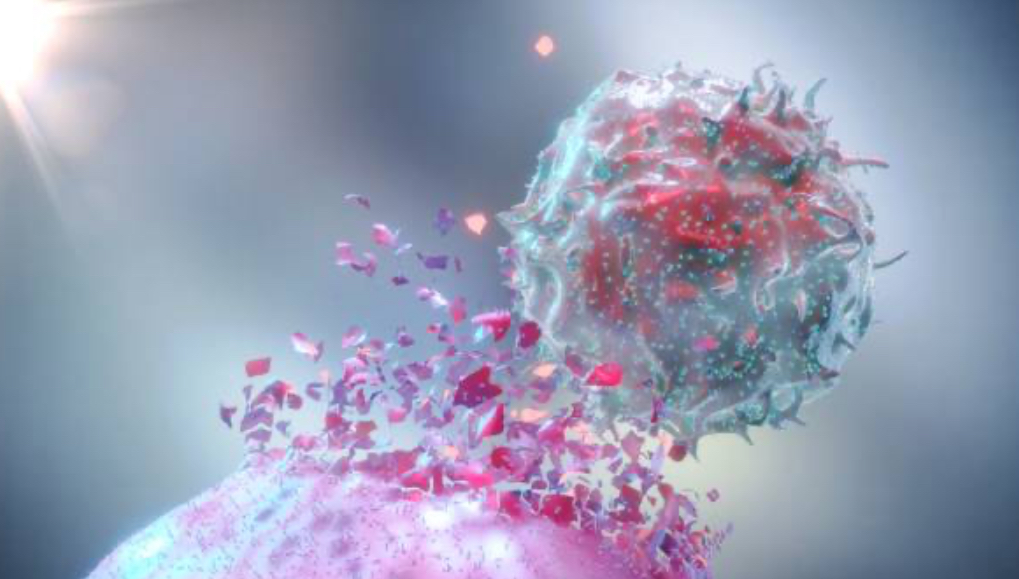Speciality

Oncology
2024-11-22 06:44
Senk
Immunotherapy in Cancer Treatment: Breakthroughs and Challenges
Immunotherapy represents one of the most exciting advancements in cancer treatment, offering new hope for patients with cancers that were once difficult or even impossible to treat. By harnessing the body’s immune system to fight cancer cells, immunotherapy has made a significant impact, leading to improved outcomes in several malignancies.
Breakthroughs in Immunotherapy
Immunotherapy includes several types of treatment, but some of the most well-known and successful are checkpoint inhibitors and CAR-T (chimeric antigen receptor T-cell) therapy.
• Checkpoint inhibitors work by blocking the proteins that prevent immune cells (T-cells) from attacking cancer cells. These inhibitors are especially effective in cancers like melanoma, non-small cell lung cancer (NSCLC), and head and neck cancers. Drugs like pembrolizumab (Keytruda) and nivolumab (Opdivo) have been groundbreaking in treating advanced stages of these cancers. Clinical trials have demonstrated that patients with metastatic melanoma, for example, who once had a very poor prognosis, can achieve long-term remission following treatment with checkpoint inhibitors (Pardoll, 2012).
• CAR-T cell therapy involves modifying a patient’s own T-cells to recognize and attack cancer cells. This approach has shown remarkable success in treating hematologic cancers like acute lymphoblastic leukemia (ALL) and certain types of lymphomas. The therapy has been FDA-approved for several blood cancers, with significant improvements in survival rates, particularly in pediatric populations (Maude et al., 2014).
Challenges and Limitations
Despite the breakthroughs, immunotherapy faces significant challenges.
1. Side Effects: While immunotherapy can be highly effective, it can also cause severe side effects due to the immune system’s attack on healthy tissues. These immune-related adverse events can affect various organs, including the lungs, liver, and kidneys, leading to conditions such as colitis, hepatitis, and pneumonitis (Kaufman et al., 2019). The severity of these side effects can sometimes outweigh the benefits of treatment, requiring careful monitoring and management.
2. High Costs: One of the major hurdles in the widespread adoption of immunotherapy is its high cost. CAR-T therapies, for example, can cost over $373,000 per patient (Lee et al., 2019). While the long-term survival benefits for certain cancers may justify the expense, the high upfront cost remains a barrier for many patients, especially in low-resource settings.
3. Personalized Approaches: Although immunotherapy holds great promise, not all patients respond to treatment. The efficacy of immunotherapy can vary depending on factors like tumor type, genetic mutations, and the immune microenvironment of the tumor. Researchers are working to identify biomarkers that can predict which patients will benefit the most from these treatments, but more work is needed to tailor immunotherapy to individual patients (Turtle et al., 2016).
The Future of Immunotherapy
As research into immunotherapy continues, the potential to expand its use across different cancer types grows. Ongoing studies are investigating combination therapies, where immunotherapy is used alongside traditional treatments like chemotherapy or targeted therapy to enhance efficacy. Additionally, efforts to reduce side effects, improve patient selection, and make therapies more affordable are crucial for making immunotherapy accessible to a larger number of cancer patients.
In conclusion, immunotherapy is transforming the landscape of cancer treatment, offering new hope for many patients. While there are challenges to overcome, its potential as a cornerstone of future cancer therapy is undeniable. As research advances, we can expect further breakthroughs that could lead to more effective, personalized, and affordable treatment options.
Sources
• Pardoll, D. M. (2012). The blockade of immune checkpoints in cancer immunotherapy. Nature Reviews Cancer, 12(4), 252-264.
• Maude, S. L., et al. (2014). Chimeric antigen receptor T cells for sustained remissions in leukemia. New England Journal of Medicine, 371(16), 1507-1517.
• Kaufman, H., et al. (2019). The toxic effects of immunotherapy: Acute and long-term considerations. Journal of Immunotherapy, 42(1), 1-8.
• Lee, S. J., et al. (2019). The cost-effectiveness of CAR-T cell therapies. Health Affairs, 38(3), 471-478.
• Turtle, C. J., et al. (2016). Durable molecular remissions in chronic lymphocytic leukemia treated with chimeric antigen receptor T cells targeting CD19. Science Translational Medicine, 8(355), 355ra116.
201
Read
Leading academic platform that is exclusive
with medical publications and research
Health in Kurdistan, Iraq and the world
About
Sections
Latest News